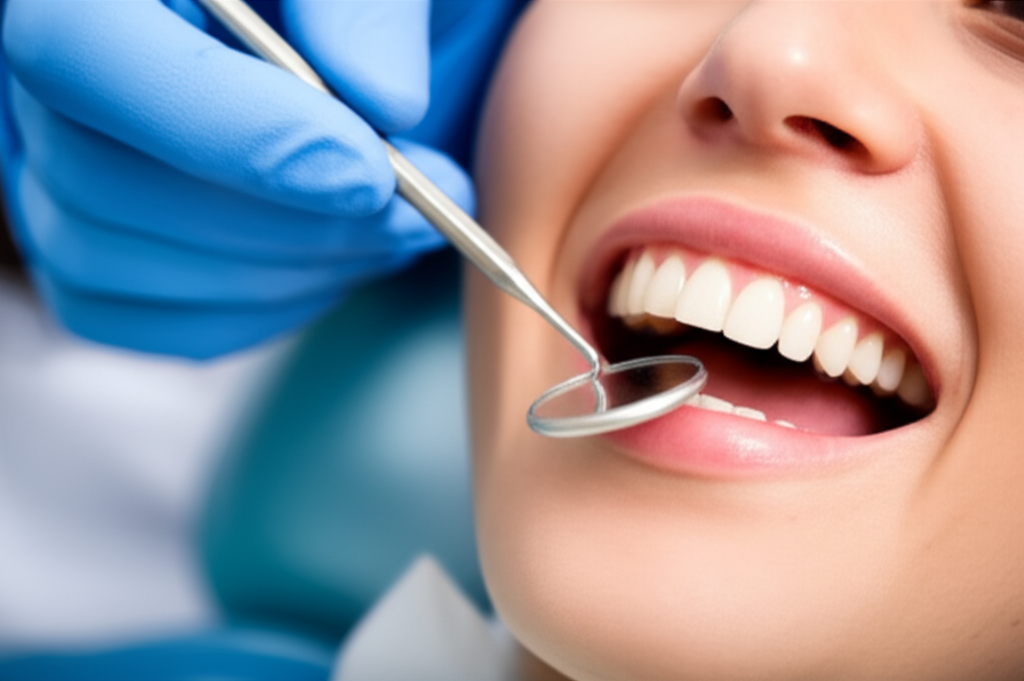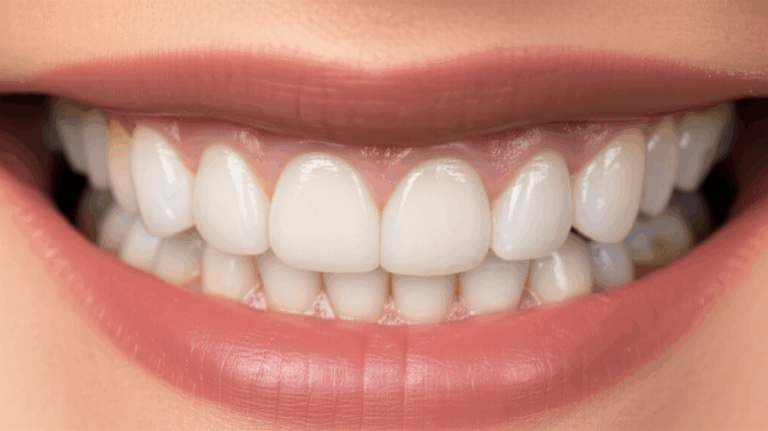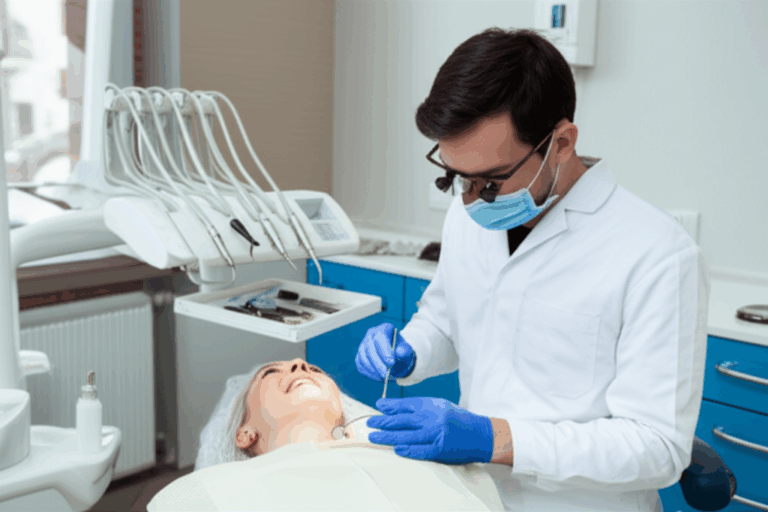
Can I Get Veneers on NHS? A Simple Guide to Your Options in the UK
That awkward moment when you look in the mirror and wish your teeth were a bit straighter, whiter, or just not so gappy? You’re definitely not alone. Maybe you’ve chipped a front tooth or have stains that won’t go away, no matter how much you brush. So you start to ask: can I get veneers on the NHS, or is that just for people on TV?
If you’re thinking about this, you deserve a clear answer—without confusing words or small print. No, you’re not being fussy, and you’re not the only one checking your options. How our teeth look matters for our confidence and even how we feel day-to-day. So let’s look at what the NHS can offer, when veneers might really be an option, and what else you can do if you want a healthy, happy smile.
What We’ll Cover
- What Are Dental Veneers?
- The NHS and Veneers: Looking Good vs. Medical Need
- When Could the NHS Pay for Veneers? (The Rare Times)
- Easy Guide to NHS Dental Prices
- What Else Can NHS Do If Not Veneers?
- Talking to Your NHS Dentist
- Private Veneers: Your Options If You Pay Yourself
- Finding an NHS Dentist
- FAQs About NHS Veneers
- Conclusion: What Should You Do Next?
What Are Dental Veneers?
Let’s start from the beginning. Veneers are very thin covers—usually made out of porcelain or a plastic-like material—that stick to the front part of your teeth. You can think of them like a new “front” for your tooth, hiding chips, stains, small gaps, or crookedness.
- Porcelain Veneers: Made in a china dental lab, they’re strong, don’t stain easily, and look very natural. They need more tooth to be trimmed but last longer.
- Composite Veneers: Put on your tooth with a tooth-coloured material in one appointment. They don’t cost as much, but are more likely to chip or wear out.
Veneers don’t replace missing teeth. They just “freshen up” what you already have. They can really boost your confidence but you need healthy teeth first.
Think of it like this: Your tooth is like a wall. If it looks dull, chipped, or has a funny colour, a veneer is like fresh, strong paint—one made to last.
The NHS and Veneers: Looking Good vs. Medical Need
Here’s where it matters: the NHS is here mainly for treatments you really need. That means anything—veneers included—must be needed to keep your mouth healthy or working right.
Why Most Veneers Aren’t Free on the NHS
Picture the NHS as a friendly mechanic for your mouth. If your “engine” is broken and it’s hurting your health, they’ll fix it. But if you just want a new shiny look, that’s likely private.
So what’s “cosmetic”?
- Wanting whiter teeth for a nicer smile
- Closing small gaps that don’t mess up your bite or speech
- Making teeth longer or the same size so they look better
These things are important for how you feel, but if your teeth work fine, the NHS calls veneers a “treat”, not a must-have.
What Does the NHS Focus On?
- Stopping pain: If a tooth hurts, that comes first.
- Fixing function: You should be able to eat and speak with no trouble.
- Stopping worse problems: If a tooth is at risk of getting worse, like starting to decay or the gums might get poorly, they’ll step in.
If it’s not about pain or function, but just how it looks, you’ll usually need to go private for veneers.
When Could the NHS Pay for Veneers? (The Rare Times)
Let’s be honest: NHS veneers are very rare, but in some real problems, it can happen.
When You Might Get Help
1. Bad Accidents
Say you have an accident and badly break a front tooth. If a veneer is the best way to put it right—not a crown or filling—the NHS might do it.
2. Real Trouble Eating, Speaking, or Biting
If a tooth is chipped, tiny, or so oddly shaped that you can’t eat or talk right, sometimes a veneer is NHS-approved to give your mouth the help it needs.
3. Big Birth or Health Problems
Things like enamel that never formed right (enamel hypoplasia) or some teeth that grow odd or tiny from birth might mean the NHS steps in, especially for children or teenagers.
What You Should Know
Often Needs a Referral: Even with a good reason, your usual dentist might need to refer you to a hospital or specialist for it to be signed off. It can take time, and you’ll want to stick with it if you think you really qualify.
Easy Guide to NHS Dental Prices
Even if you qualify for NHS veneers, it helps to know what you might pay.
NHS Dental Bands (England 2024)
- Band 1 (£26.80): Check-ups, X-rays, advice, basic cleaning.
- Band 2 (£73.50): Everything in Band 1 plus fillings, root treatments, taking out teeth.
- Band 3 (£319.10): All above plus crowns, dentures, bridges—and veneers if they’re agreed as needed.
> Remember: Band 3 pays for the whole treatment, not for each tooth.
Who Gets NHS Dental Free?
You don’t pay if you:
- Are under 18 (or under 19 if in school/college)
- Are pregnant, or have had a baby in the last year
- Get some low income benefits (best to check the latest NHS rules online)
If not, you’ll need to pay the Band 3 fee if your veneer is approved.
What Else Can NHS Do If Not Veneers?
So if NHS won’t pay for veneers, does that mean you have no chance? Not at all. There are other things they can do, and some might work even better for your needs.
Let’s look at your choices:
1. Composite Bonding
Good for small chips or marks on the teeth you show when you smile. A matching colour is shaped onto your tooth then set with a blue light. Not as perfect as porcelain, but does a great job for small fixes—and often cheaper (Band 2).
2. Crowns
If a tooth is really damaged or had lots of fillings, a crown that covers the whole tooth might be a better fix. These are more often given on the NHS when you need them (Band 3).
3. White Fillings
For fixing decay or small chips, especially on front teeth, composite (white) fillings can work very well. These are usually Band 2. For back teeth the NHS only does white fillings if there’s a proper reason, not just for looks.
4. Braces (Orthodontics)
Teeth not straight? Braces might help, especially for under-18s. The NHS does braces for youngsters meeting certain rules, but the wait can be long. Sometimes, braces are a better fix than veneers anyway.
5. Bridges, False Teeth, or Implants
If you’re missing teeth, NHS can do bridges or dentures if needed. Implants are rare and usually for big injuries or people born without some teeth.
6. Simple Advice and Treatments
Sometimes the best thing is just to keep your teeth as healthy as you can. NHS can help with advice, fluoride varnish, and regular cleaning to look after your teeth.
Talking to Your NHS Dentist
Ready to talk to your NHS dentist? Here’s how to do it well:
1. Book a Check-Up
Start with a check-up. It’s the right time to talk about what’s on your mind.
2. Be Honest
Tell your dentist what’s really bothering you. Pain? Problems eating or speaking? Or just how things look? If it’s about how they work, that’s more likely to get NHS help.
3. Listen to What They Suggest
Your NHS dentist will tell you what treatments are possible, which are NHS, and if your case meets the rules for NHS veneer or other care.
4. Ask Questions
- Are there other ways (not veneers) that could help me?
- If I get bonding, how long will it last?
- Will I be sent to a specialist?
- How long is the waiting list for this sort of treatment?
5. Ask for Another Opinion If You’re Unsure
If you think they’re missing your problem, it’s okay to ask for someone else to check.
Private Veneers: Your Options If You Pay Yourself
If the NHS won’t cover it, is it worth paying yourself? Let’s be open:
Why Go Private?
- Looks: You can get a real “movie star” smile.
- More Materials: Pick the latest types and styles from top veneer labs.
- Faster: No long NHS wait.
- Personal Choice: Results made just for you.
What to Watch For
- The Bill: It can cost £400 to £1,000 or more for each tooth.
- Upkeep: Even strong veneers need fixing or swapping out after some years.
- Over the Top: Sometimes a simple fix is all you need. Always ask your dentist’s honest view.
How to Pay
Many private dentists have payment options or plans. Dental insurance usually doesn’t pay for looks-only treatments, but it’s always best to ask.
Finding an NHS Dentist
Getting an NHS dentist isn’t always simple these days. Here’s how to start:
Tip: If you move or miss a practice for over two years, you might need to sign up again.
FAQs About NHS Veneers
Can I get composite veneers for gaps on NHS?
Almost never, unless the gap is making it hard to eat or speak.
Can I get veneers for stains on the NHS?
No, not just for stains. It has to be needed for your mouth’s health or use.
How much do private veneers cost in the UK?
Usually between £400 and £1,000 or more for each tooth.
Does the NHS do cosmetic bonding?
Yes, but only if it’s fixing a problem—not just making teeth look whiter.
What does the NHS always cover?
Check-ups, fillings, taking teeth out, crowns if needed, prevention advice, and braces for some children or teens.
Conclusion: What Should You Do Next?
Here’s the short version:
What to Remember
- NHS veneers only happen in special cases where it’s for your health or tooth use. For things like wanting a whiter or neater smile, you need to go private.
- The NHS looks after health first, not looks. Treatments focus on pain, eating, speaking, and stopping tooth problems.
- You might get great results from bonding, crowns, or white fillings. Always talk to your dentist about every option.
- Private veneers look great but do cost a lot. Always know the total cost before you start.
- The best thing is to keep your mouth healthy, go for check-ups, and talk honestly with your dentist.
Here’s what to do:
For more about new dental tech and top materials for crowns and bridges, have a look at a crown and bridge lab or how digital dental labs help make strong, modern teeth.
Put your mouth health first—and your smile (and self-confidence) will thank you.
Made to help, make things clear, and show you where to go next—because everyone should feel good about their smile and the choices they make.








